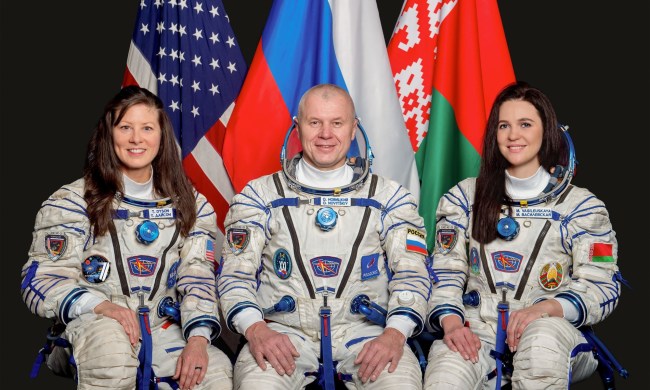Russia’s space agency has announced it plans to launch a replacement Soyuz spacecraft to bring home ISS crew members later this month.
In an announcement posted to Telegram, Russian space agency Roscosmos said it was planning to launch the replacement Soyuz vehicle on February 24 at 3:34 a.m. Moscow time, which is equivalent to 7:34 p.m. ET on February 23.
The replacement Soyuz is needed due to a coolant leak in the original Soyuz craft which was scheduled to carry NASA astronaut Francisco Rubio and Roscosmos cosmonauts Sergey Prokopyev and Dmitry Petelin back to Earth. The leak in the coolant system meant that temperatures inside the Soyuz could have reached dangerous levels during the return trip through the atmosphere.
To avoid this potential danger, the replacement Soyuz will carry the trio home instead. In case of an emergency, a SpaceX Crew Dragon capsule is available if the ISS crew needs to be evacuated before the replacement Soyuz arrives.

The announcement of the replacement Soyuz launch date follows a second coolant leak that occurred on an uncrewed Progress cargo spacecraft while the vehicle was docked to the ISS. Roscosmos decided to check on the status of the Progress craft before confirming the launch date of the replacement Soyuz crew craft.
Roscosmos said that its external checks of the Progress craft revealed no damage to its radiator, so the craft was undocked and deorbited as planned. Loss of coolant was not a concern for the deorbiting process as the only cargo within the vehicle as it traveled away from the station was trash and it was to be destroyed during deorbiting anyway.
According to NASA updates, the Progress was undocked from the station at 9:26 p.m. ET on Friday, February 17, though its deorbit was delayed by around 24 hours to allow time for inspection of the vehicle. During this time the craft was put into a trajectory away from the station for safety reasons, before performing its final deorbit burn at 10:15 p.m. ET on February 18 and burning up in the atmosphere.
The source of both of the two recent coolant leaks is not entirely clear. The most likely culprit is an impact by a micrometeoroid, a known threat in the vicinity of the ISS as small particles of rock can travel at very high relative speeds and damage space station components.



